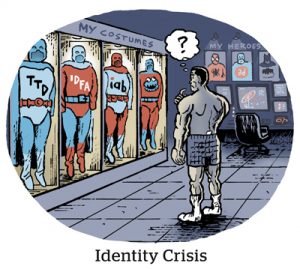 “Data-Driven Thinking” is written by members of the media community and contains fresh ideas on the digital revolution in media.
“Data-Driven Thinking” is written by members of the media community and contains fresh ideas on the digital revolution in media.
Today’s column is written by Cameron Hulett, executive director at EMEA Undertone.
When Google revealed plans for its own Internet tracking technology – called AdID – to replace the cookie, it signalled the death knell for this much maligned piece of software code. Shortly afterward, Microsoft promised its own cookie alternative, with Apple and Facebook following suit.
It’s a poignant moment. While cookies have taken a battering in recent years, they are ubiquitous and are a current requirement for tracking Internet browsing, with marketers using them as a de facto tool to target advertisements across the Web.
However, in recent years cookies have come to be thought of as invasive, and today Apple’s Safari, Mozilla’s Firefox and Microsoft’s Internet Explorer 10 all either block them by default or made it easier for users to do so.
More importantly, from a commercial standpoint, is that cookies are largely restricted on mobile devices, a market that is growing at warp speed. These devices include Apple’s iPad and iPhones, and Android. This means the new tracking dynamics are being driven primarily by the increasing dominance of mobile advertising. Thus, mobile platforms are rendering the cookie obsolete because advertisers couldn’t track people across multiple platforms.
All For One, One For All
Where is all this leading? The tech giants will be fighting over the data that is created via their own tracking systems. However, there’s nothing new in this. The tech industry is characterised by innumerable spats and as we move forward there’ll be a battle to create an industrywide tracking standard that provides advertisers with the data they need to better target ads. Will one Ad ID become the de facto winner? Will all Ad IDs become interlinked? Or will privacy concerns delay the process enough for newer technologies to supersede it all?
Whatever happens, rival platforms will inevitably fall in line as this market matures.
What will happen then? The new breed of unique identifiers will enable marketers to connect the dots between devices, target better ads to individuals and attribute marketing spend with greater accuracy – no small feats.
On one level, this can be seen simply as an evolutionary step in which marketing endeavours are ultimately informed by greater reach and greater accuracy. In fact, unique IDs are arguably the only accurate way to unlock the marketing challenge of cross-screen devices. As the media space becomes increasingly fragmented, this is crucially important.
Follow Cameron Hulett (@cameronhulett) and AdExchanger (@adexchanger) on Twitter.













